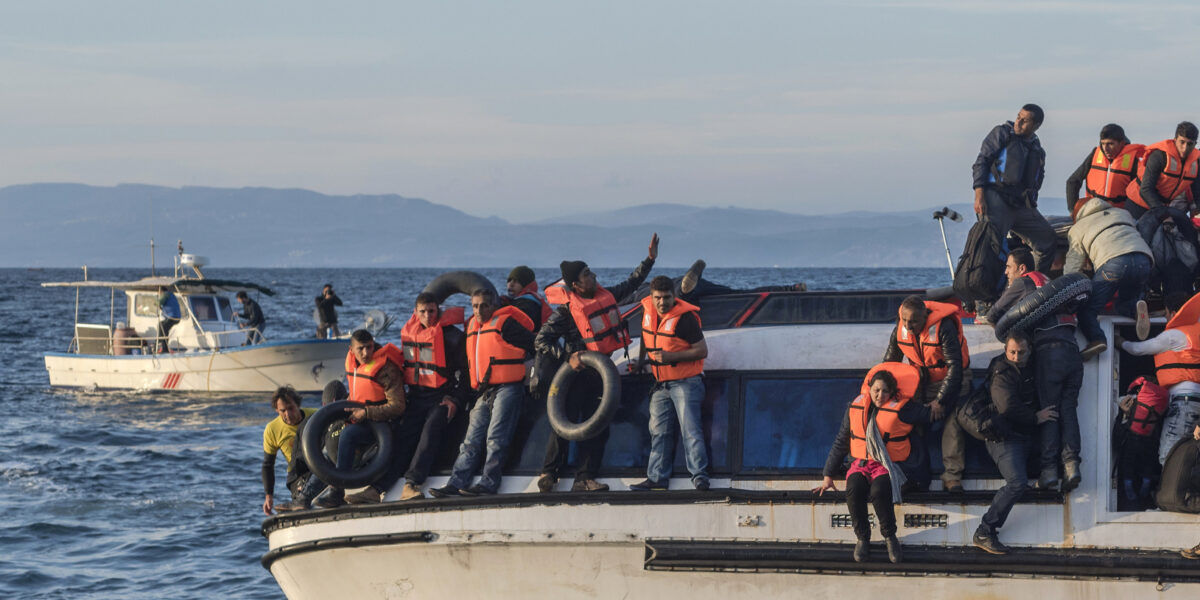The British Government’s plan to deport refugees to Rwanda is shameful. Equally appalling are the inhumane and harsh narratives around refugees and migration from poorer Global South countries, many of which are racist. Compare this to the way the Ukrainian refugee crisis was dealt within a civilised and humane manner; this humane treatment should be the norm for all refugees and debates on asylum and migration.
When it comes to refugees from poorer countries in the Global South, politicians and the media use scare tactics to win public support for such immoral policies. They raise fears of terrorism, criminality and the country being ‘burdened’ by refugees and economic migrants. This is, at a time in post-Brexit Britain, when fruits are rotting on farms because not enough workers are available to pick them. There are labour shortages in many areas of the economy. Yet the narrative and comments politicians and media use would not be out of place in far-right racist parties across Europe.
It is essential that we challenge the myth that Britain and Europe have taken in their fair share of refugees in line with international commitments (except Germany which has taken in 1.2 million); and that the numbers taken in are a ‘burden’ on some of the richest economies of the world.
The ‘burden’ of the global refugee population, of some 35 million, is not shared equally between Europe and the rest of the world.
According to the UNHCR developing countries host 85% percent of the world’s refugees, not the most prosperous countries in the world. The least developed countries provide asylum to 27% of the total. Countries like Pakistan and Iran have housed millions of Afghan refugees for almost 43 years. Meanwhile, Turkey has hosted 3.5 million Syrian refugees since the early days of the Syrian conflict in 2011. Just 5 countries host 39% of global refugees. Germany is the only European country among the five.
At another level, the international system has failed to provide sufficient safe routes for refugees because it is dependent on national state policies.
Refugees today are faced with stark choices and a grim reality. They are either housed in squalid camps around the world, where they can have a miserable existence for decades with future generations raised there, or, they may be settled in run-down areas of poorer countries, unable to work and fend for themselves and subject to exploitation. At least in the refugee camps, they will at the very least receive some level of food aid.
Some refugees may be lucky enough to reach the West through the limited safe routes, however, most are left with a third option; to escape persecution and misery by risking their lives on a boat at sea or through people smugglers. They risk their lives to make a life for themselves and their children. There are no good options for the world’s thirty-five million refugees today, many of whom have emerged out of the West’s military involvement in their countries. The people of those countries and their neighbouring countries usually bear the most responsibility for the chaos that the West may have caused.
The most prosperous countries take the least responsibility and share that ‘burden’.
Politicians and the media then have the audacity to talk about how they are taking much of the international ‘burden’ for refugees and their ‘tolerance’ towards them. Thanks to the way the politicians and media dealt with Ukrainian refugees most people now understand what tolerance and intolerance in relation to refugees look like.
Whilst British politicians have failed to stop an inhumane and racist policy, civil society has stepped up and managed, for now, to do what they could not.
However, the international system continues to fail and offers no solutions to the continuing misery of the world’s refugee crisis. Better, more humane solutions to these problems must be found by the UNHCR, individual states as well as civil society.


Leave a Reply